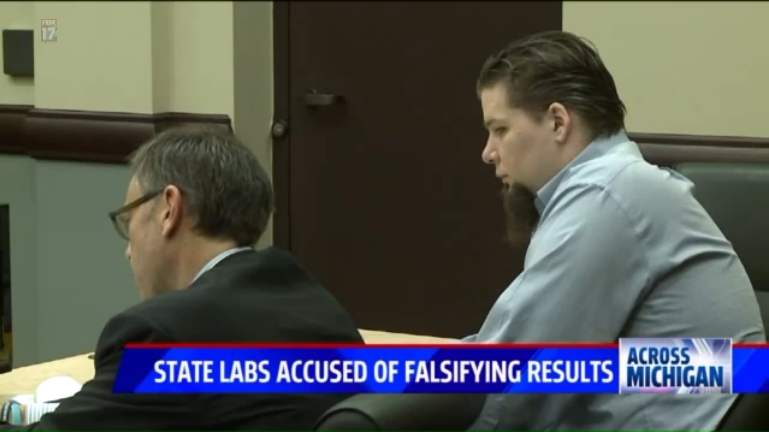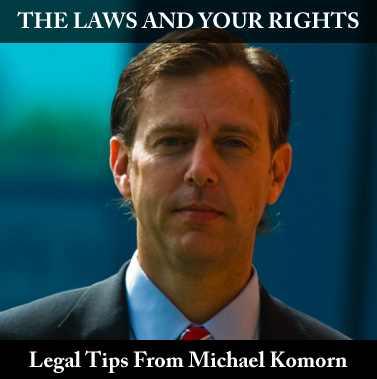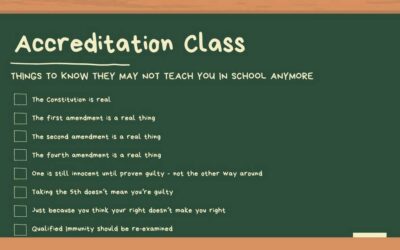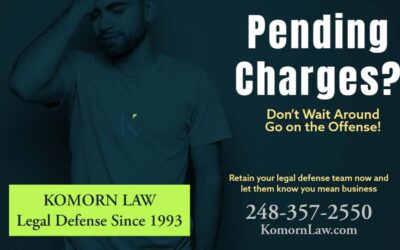Opinions – Everyone’s got one or two or three: A Look at Michigan Rules of Evidence 701-707
Lay Versus Expert Opinions (Rules 701 & 702)
Before delving into specific rules, it’s crucial to establish the fundamental distinction between lay witnesses and expert witnesses.
Lay witnesses are individuals with everyday experiences and observations, while experts possess specialized knowledge, skill, or training in a particular field.
This distinction directly impacts the admissibility and weight given to their opinions.
Rule 701 governs lay witness opinions. Here, opinions are only admissible if they are:
- Rationally based on the witness’s personal perceptions: This means the opinion must stem directly from the witness’s observations of the events or circumstances in question. For example, a witness can testify that a car “looked like it was speeding” if they observed its excessive speed firsthand.
- Helpful to a clear understanding of the witness’s testimony or to determining a fact in issue: The opinion should shed light on the witness’s observations or assist the jury in comprehending the facts of the case. An example would be a witness stating that a certain behavior “made me feel threatened” when explaining their emotional state during an incident.
Rule 702, on the other hand, empowers expert witnesses to offer opinions based on their specialized knowledge. However, their testimony must meet four key criteria:
- Relevance: The expert’s knowledge and opinion must be relevant to the specific issues at hand in the case.
- Reliability: The expert’s field of expertise, methodology, and conclusions must be grounded in reliable principles and methods recognized by the relevant scientific community.
- Factual Basis: The expert’s opinion must be based on sufficient facts or data, either presented in evidence or personally observed.
- Application: The expert must reliably apply their expertise and methods to the specific facts of the case at hand.
Have your rights been violated?
Have your driving priviledges been revoked?
Has your professional license been suspended?
Second Amendment rights taken away?
Have you been charged with a crime?
Call our office to see if we can help
Komorn Law 248-357-2550
Rule 703 provides further clarity on the sources of an expert’s opinion. Experts can base their opinions on facts or data in the case they have been made aware of or personally observed, even if not yet formally admitted into evidence. This allows for greater flexibility in utilizing their expertise.
Rule 704 addresses the question of “ultimate issues.” Opinions are not inadmissible simply because they touch upon the core question of the case, known as the “ultimate issue.” For example, in a medical malpractice case, an expert may be able to offer an opinion on whether the doctor’s actions fell below the standard of care, even though this goes directly to the heart of the jury’s decision.

Rule 705 deals with the timing of the disclosure of the factual basis for an expert’s opinion. Generally, experts can state their opinion and its rationale without first disclosing the underlying facts or data. However, the opposing party may have the opportunity to delve into these details during cross-examination, ensuring transparency and allowing the jury to assess the basis of the opinion.
Rule 706 empowers the court to appoint independent expert witnesses in certain situations. This might occur when both parties present conflicting expert opinions, or when the court deems neutral expertise crucial for fair and balanced adjudication.
Finally, Rule 707 governs the use of learned treatises for impeachment purposes. Learned treatises are scholarly publications in a field of expertise. This rule allows for cross-examining expert witnesses by bringing to their attention statements in reputable treatises that contradict their testimony. However, these treatises are not admissible as standalone evidence and can only be read into the record for impeachment purposes.
The Impact of Opinion Testimony: Weighing the Scales
Understanding the intricacies of Rules 701-707 highlights the delicate dance between lay and expert opinions in the courtroom. These rules safeguard against unreliable or prejudicial pronouncements while enabling the valuable contribution of both everyday understanding and specialized knowledge. The jury ultimately acts as the arbiter of fact, tasked with weighing the credibility and persuasiveness of all opinions presented, whether from lay witnesses or experts.
Important:
This article provides a simplified overview of the Michigan Rules of Evidence for informational purposes only. It should not be interpreted as legal advice. When facing legal matters, always consult with a qualified attorney for professional guidance.
The Michigan Rules of Evidence are subject to change over time. Always consult the latest official version for accurate information.
Here is the link to the Michigan Rules of Evidence Handbook. Check the footer for the latest update.
Related Articles
No Results Found
The page you requested could not be found. Try refining your search, or use the navigation above to locate the post.
More Posts

MI Cops Change Policy So They Can Falsely Imprison Legal Pot Smokers
In 2008, an overwhelming majority of Michigan voters approved legislation to legalize marijuana for medical use in the state. With nearly 50,000 Michigan residents arrested and incarcerated each year for controlled substance violations, the state’s prison industrial...

Attorney Alleges Authorities `Bend The Science’ To Elevate Marijuana Cases
MIRS-Michigan Independent Source Of News and Information Friday Nov 6, 2015 Maxwell LORINCZ, of Spring Lake, says a fingerprint of oil on an empty plastic container led to his arrest on a drug charge on Sept. 24, 2014. Now, a year later, the case that might have...

Drug felonies without credible proof? — Allegations of politicking in state police crime labs
GRAND RAPIDS, Mich. – First on FOX 17, we broke serious allegations that state police crime labs are being told to falsely report marijuana test results. This is resulting in misleading lab reports that an attorney claims creates felonies without real proof. ...

Attorney: Crime labs ‘falsified’ marijuana reports
A Southfield lawyer alleges the Michigan State Police crime labs have “falsified lab reports on marijuana statewide” and he’s asking a judge to dismisses charges lodged against a client. Michael Komorn, who also represents defendants in Livingston County, said...

Hearing in alleged false crime lab marijuana reporting dropped this week
OTTAWA COUNTY, Mich. – The evidentiary hearing originally set for Nov. 5 has been dropped in the case involving a medical marijuana patient charged with a disputed felony for synthetic THC, the psychoactive ingredient in marijuana. The Ottawa County Assistant...


“A non-stop political game:” Former MSP Forensic Science director on false marijuana reporting …
DEWITT, Mich. – A former director of Michigan State Police Forensic Science addressed the serious allegations FOX 17 uncovered, which accuse the Attorney General’s office and state prosecutors of influencing state police crime labs to falsely report marijuana;...


Michigan’s medical marijuana law circumvented by crime labs’ THC reports, attorney charges
Posted on MLive 10/30/15 OTTAWA COUNTY, MI – An attorney claims prosecutors pressured state police crime labs to change the way THC, the active ingredient in marijuana, is reported in an effort to circumvent Michigan's medical marijuana law. Michael...


Medical-Marijuana Patient Alleges Prosecutors Swayed Crime Lab Drug Tests
Fri, 10/30/2015 - 4:11pm A Michigan medical-marijuana patient claims in court papers that state police crime labs are bending to pressure from prosecutors in analyzing marijuana samples, leading to harsher punishments. Maxwell Lorincz, 35, was originally...



Allegations: MSP falsely reporting marijuana, targeting card-carrying patients
SPRING LAKE, Mich. – The defense representing a Spring Lake father facing a felony marijuana charge is accusing Michigan State Police Forensic Science Division crime labs of misreporting marijuana intentionally. It’s an allegation with statewide implications. ...


When Being Hated…Is Revered
By Attorney Michael Komorn " Lieutenant, this lawyer is a pain in the ass, I can't stand him, I really hate him" This was my client's observation of the prosecutor after exiting the conference room she and I had been in for over an hour discussing and...








